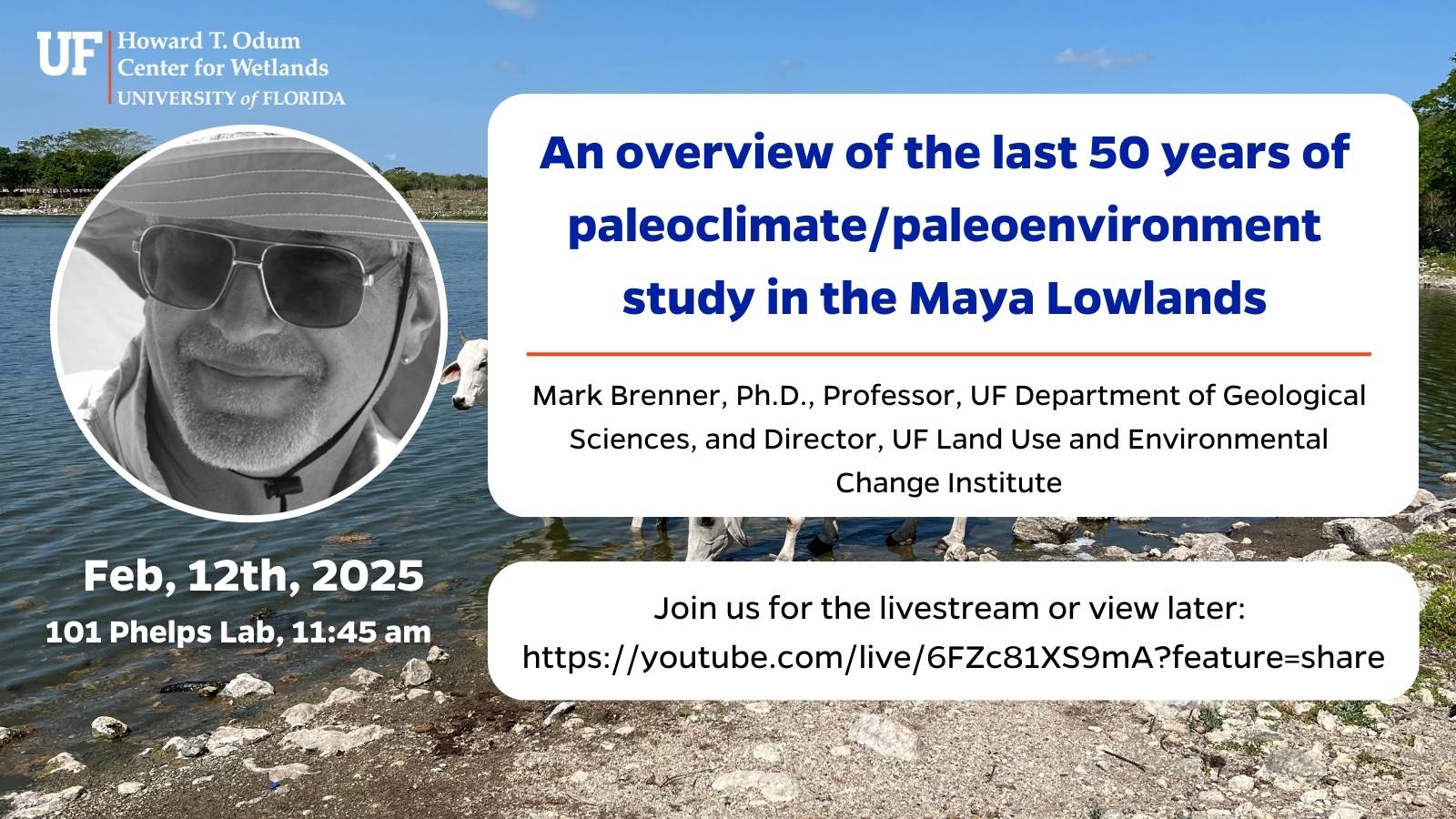
Mark Brenner, Ph.D., Professor, Department of Geological Sciences, University of Florida
Join us for the livestream February 12, 11:45am ET: https://youtube.com/live/6FZc81XS9mA?feature=share
(Please visit our YouTube channel main page for the stream if there are any issues with the direct link.)
ABSTRACT
The Maya region of Mesoamerica has been the focus of paleoclimate/paleoenvironment investigations for decades. It is an ideal area in which to explore interactions among climate, environment and humans, in part because it was so densely populated by the ancient Lowland Maya from ca. 3000 to 1000 years ago. One can view that dense settlement as a protracted, grand experiment in human exploitation of low-elevation, dry tropical forest. The region is replete with waterbodies, and sediments in local lakes preserve the history of changing climate, landscape and limnological conditions. In the early 1970s, paleolimnologists and archaeologists at UF began to work together and investigate how the ancient Maya impacted the karst watersheds and lakes of the region. In the 1990s, the scientists turned their attention toward examination of Late Holocene climate fluctuations and possible detrimental impacts of severe droughts on Late Classic Maya culture in the 9th century CE. In the past few decades, improvements in radiocarbon dating and advances in measurements of stable isotopes, biomarkers (pigments, cyanotoxins) and metals have shed new light on the consequences of long-term human activity in the Neotropics. Furthermore, creation of the International Continental Scientific Drilling Program (ICDP) in the late 1990s enabled deep drilling of Lake Peten-Itza, Guatemala, which revealed details of Pleistocene climate variations in the area that extend back ~400 ka. I will present highlights of discoveries in the Maya region over the past 50 years and will discuss some of the new questions we are addressing (e.g. human-mediated heavy metal contamination). I will also briefly touch on alternative approaches we are taking (speleothem analysis) to refine our understanding of past climate/environmental conditions in the region.
BIO
Mark Brenner is a limnologist/paleolimnologist with special interests in tropical and subtropical lakes and watersheds. He is a Professor in the University of Florida (UF) Department of Geological Sciences and serves as Director of UF’s Land Use and Environmental Change Institute (LUECI). He has taught or teaches courses in Limnology, Paleolimnology, Florida Lake Management, Florida Geology, Tropical Field Ecology, and Humans and the Environment of the Yucatan Peninsula, the latter two for UF in Mexico. He coordinated the Geological Sciences seminar from 2015 to 2022.
Mark’s research addresses interactions among climate, environment, and humans, and he has conducted fieldwork in Mexico, Guatemala, Panama, Venezuela, Bolivia, Ecuador and the Galapagos Islands, Colombia, Haiti, Dominican Republic, China, Cambodia, Madagascar, and Florida (US). Mark served as Co-Editor-in-Chief of the Journal of Paleolimnology (Springer) from 2007 to 2022.
POSTCARD
